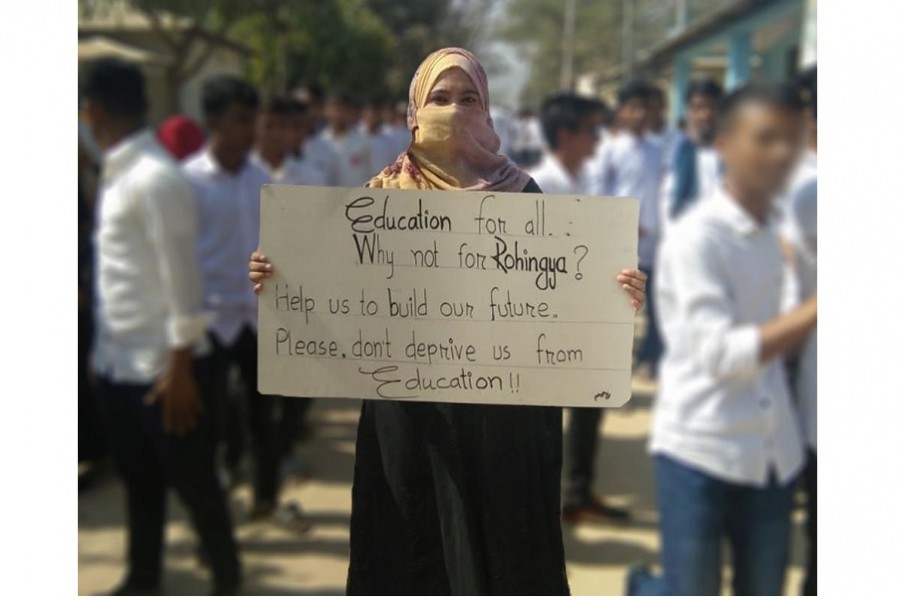HRW urges education facilities for Rohingya children in Myanmar, Bangladesh

Published :
Updated :

Concerned at the Rohingya children’s deprivation of education, Human Rights Watch (HRW) has urged the international donor community to ensure formal learning facilities for younger generations of Myanmar’s displaced people at home and in Bangladesh.
The rights organisation said the governments participating in Thursday’s Rohigya fundraising conference should insist that Myanmar and Bangladesh provide required education to the Rohingya children.
The HRW made the call in a letter it issued to the conference hosts, saying that the majority of Rohingya children both in Myanmar’s Rakhine State and in camps in Bangladesh are barred from formal education.
“This entire generation of Rohingya children is being deprived of education and there is no end in sight to the status quo of gross discrimination in both Myanmar and Bangladesh,” said HRW’s associate children’s rights director Bill Van Esveld.
“Donor governments should demand a paradigm shift to fulfil this basic human right of quality education, with the full involvement of the Rohingya community.”
The US, UK, EU, and the UN refugee agency hosted the donors’ conference with the aim of closing the $500 million funding gap in a humanitarian needs plan budgeted at $1.0 billion.
According to organisers, most of those resources would be earmarked for supporting the Rohingya in Bangladesh.
However, the government of Bangladesh is more focussed on repatriation of the Myanmar nationals within the shortest possible time.
The HRW said education programmes have been further restricted or shut down entirely in Rohingya detention camps in Myanmar and in Rohingya refugee camps in Bangladesh due to Covid-19 related closures, with limited distance learning alternatives.
“But even if existing programmes were fully funded and reopened, the vast majority of Rohingya children would still be denied access to formal, accredited education or secondary school,”the right body said.
It added that the donor governments should demand the Myanmar authorities lift barriers to Rohingya children’s access to education inside the camps and villages in Rakhine State, and press Myanmar to accredit formal education in the Myanmar curriculum for refugee children in Bangladesh.
Donor governments have also been urged to insist that Bangladesh urgently lift restrictions on Rohingya refugee children’s ability to enroll in formal, accredited education, and to complete secondary education.
The HRW recommended that Bangladesh and humanitarian groups working with Rohingya refugees should urgently develop plans to scale up the Myanmar curriculum to all children, and implement the core humanitarian principle that refugee communities play a leading role in education programming.
In Myanmar, HRW continued, about 600,000 Rohingya remain in Rakhine State, confined by the Myanmar government in camps and villages under conditions that amount to the crimes against humanity of apartheid, persecution, and severe deprivation of liberty.
About 65,000 Rohingya children are detained in camps, where they are mainly provided, at best, with only basic instruction in “temporary learning centres.”
In Bangladesh, none of the nearly 400,000 school-age Rohingya refugee children currently have access to certified, formal primary or secondary education, or to university or college, HRW statement said.
Since mid-2019, Bangladesh authorities have allowed humanitarian groups to provide younger children with a “learning competency framework approach,” but, the HRW pointed out, this is not formal or accredited and includes only a few years of lessons.


 For all latest news, follow The Financial Express Google News channel.
For all latest news, follow The Financial Express Google News channel.